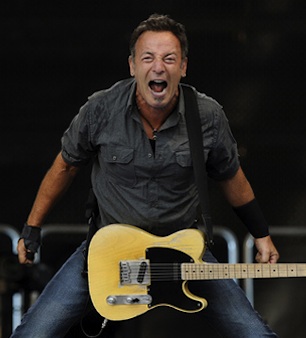Do all celebrities line up behind causes just to give themselves a bit more publicity? Do they really care about the Keystone Pipeline, homeless animals or the victims of Superstorm Sandy?
I can’t speak for all of them, but there’s no doubt that these five, my top picks for celebrity activists of 2012, are motivated by a deep sense of commitment to their causes.
1. Ted Danson may be better known for his acting roles, such as playing Sam Malone on the TV series “Cheers.” But for over 25 years, he has also been an environmental activist working to alert the world to the critical condition of the Earth’s oceans.
Danson is the co-founder of American Oceans Campaign (AOC), an organization devoted to safeguarding the vitality of the oceans and our coastal waters, and his passion for the ocean dominates his life. He’s even been known to chase senators into elevators trying to get them to listen. His work on this cause has earned him respect and a high profile in both environmental and political circles. His wife Mary Steenbergen is also an activist.
2. Lou Wegner heads up one of the country’s fastest-growing animal rescue organizations.
Wegner, a 16-year-old actor and singer from Columbus, Ohio, started Kids Against Animal Cruelty on Facebook when he was 14. The organization works to encourage adoptions at high-kill animal shelters and has helped 20,000 pets escape euthanasia in two years. The teen became aware of euthanasia at shelters when he went to Los Angeles to make the short film “Be Good to Eddie Lee.”
When the director suggested that he volunteer at an animal shelter, he discovered that far from being a safe haven for animals, many shelters were killing their occupants. His group now has more than 12,000 U.S. members and 50,000 members, supporters and partner coalitions across the globe.
3. Yoko Ono, along with her son Sean Lennon, launched the pair’s group, Artists Against Fracking, in New York on August 29 of this year.
The two had previously introduced their organization on “Late Night with Jimmy Fallon,” and have now recruited over 200 musicians, artists and filmmakers to the coalition. Ono urged the public at the New York event to take a stand against fracking and to call on New York Gov. Andrew Cuomo (D) to reject the practice.
Fracking, or hydraulic fracturing, is a drilling technique which involves injecting toxic chemicals, sand, and millions of gallons of water under high pressure directly into the ground to release natural gas in shale deposits. Problems arise when toxins and sediment leak to the surface and enter rivers and groundwater in the process.
4. Edward Norton headed up a group of Hollywood stars last June when he advocated for the creation of an Arctic reserve and the protection of animal and plant species.
Along with Norton, Robert Redford, Penelope Cruz, Paul McCartney and many others signed Greenpeace’s petition for the creation of a global sanctuary around the North Pole, with a ban on offshore oil drilling and an end to unsustainable fishing.
Norton, the United Nations goodwill ambassador for biodiversity, appeared at a news conference at the U.N.’s Rio+20 earth summit to raise awareness of the fight to preserve the earth’s rich variety of species, explaining that it was his role as goodwill ambassador to highlight how our survival as humans is linked to that of all the other animals and plants.
5. Bruce Springsteen: Where to begin with “The Boss”?
Let’s try Rolling Stone:
For nearly four decades Bruce Springsteen has been a working-class hero: a plainspoken visionary and a sincere romantic whose insights into everyday lives — especially in America’s small-town heartland — have earned comparisons to John Steinbeck and Woody Guthrie. His belief in rock’s mythic past (and its potential) revitalized pop music and made Springsteen a superstar in the Eighties. He maintained his enormous popularity into the 21st century, when he became even more of an outspoken political activist.
In 2012, Springsteen threw himself behind President Obama, most famously warming up the crowd for him in Madison, Wisconsin. Springsteen also played at Obama’s final two events of the campaign — in Columbus, Ohio and Des Moines, Iowa. From 1979, at his first-ever political concert appearance to protest nuclear power, through a surprise appearance with a single song alongside Jackson Browne at a 750,000-person nuclear freeze rally in Central Park, and numerous Amnesty International concerts, to his involvement in the 2012 election, Springsteen has stuck to his liberal leanings. He is the real thing!
Media that fights fascism
Truthout is funded almost entirely by readers — that’s why we can speak truth to power and cut against the mainstream narrative. But independent journalists at Truthout face mounting political repression under Trump.
We rely on your support to survive McCarthyist censorship. Please make a tax-deductible one-time or monthly donation.
